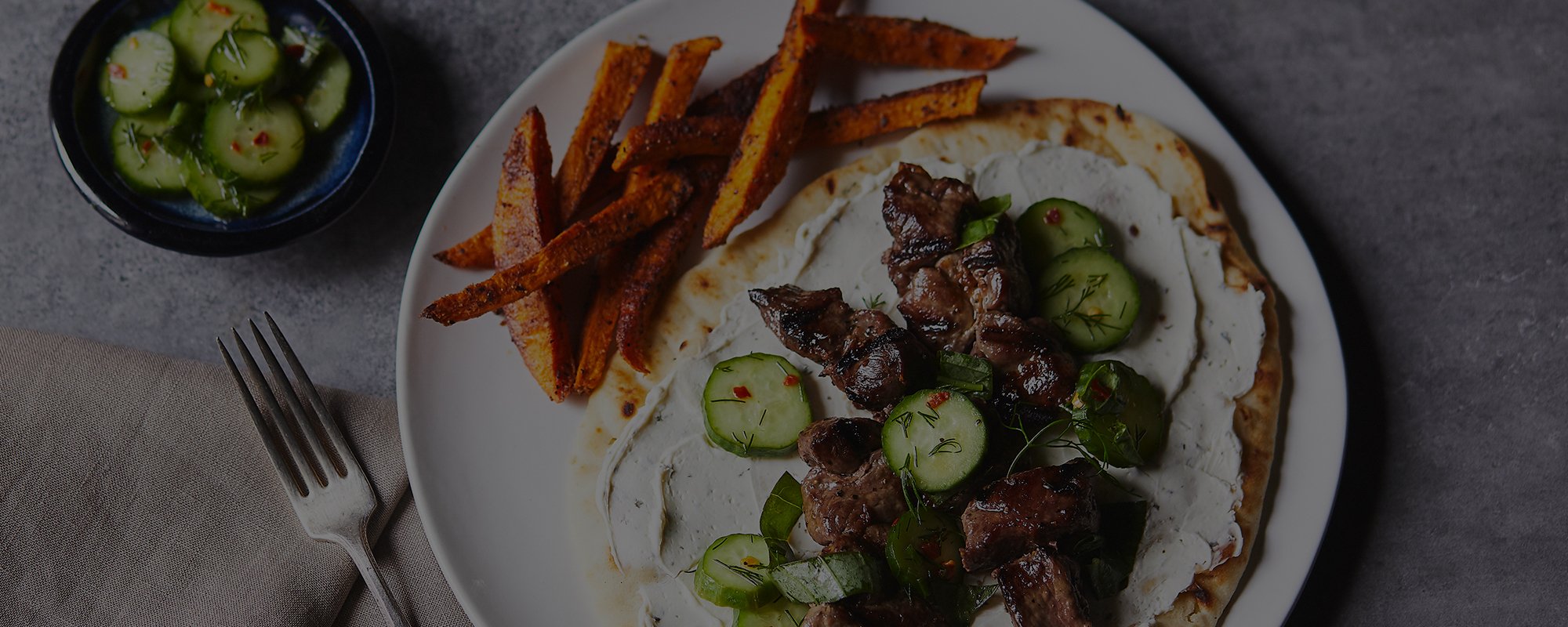
In this week’s interview, we talk D2C strategy with Steven Vigilante, former Head of Partnerships @ Chef’d and Founder of Emerging Brands Studio.
July 27, 2018
Can you tell us a little about your role?
I recently left the chef-designed meal kit company Chef’d to form a consultancy that works with emerging food and beverage brands. I’ve been in the F&B world for five years, four of those in venture capital and one at Chef’d. In that time, it’s become clear that most F&B companies have a very limited approach to eCommerce. So I’m trying to help everyone from emerging brands design and implement direct-to-consumer strategy, distribution, and fulfillment capabilities (among other things).
What did you learn from your time at Chef’d?
Chef’d provided an innovative D2C service, but due to an over-proliferation of ecommerce SKUs and an inability to raise additional capital, it was forced to cease operations recently. We were the first non-subscription eCommerce meal kit company; at our peak, we had 400+ staff, 25 retail customers and roughly 200 licensing partnerships. The traditional issue with the subscription meal kit model is that customer acquisition costs are very high and churn is also very high; people don’t want to eat the same thing from the same place every week and the average customer stays with the service for less than six months. Many companies spend more and more to acquire customers who return less and less. Chef’d offered a fresh approach to this model by selling meals, both online and offline, without a subscription. Instead of being tied to receiving a box every week, we built meal kits in partnership with large CPGs and celebrity chefs, which helped to spread the marketing & merchandising burden, and lead to lower customer acquisition costs. For example, Campbell’s Soup invested $10 million in their partnership that involved a new product named Campbell’s Kitchen. This was their first ever direct to consumer offering, involving 30-40 meal kits sold online.
Why should traditional F&B companies be thinking about the D2C channel?
Quite simply, the D2C channel gives these companies an opportunity to directly interact with their customers for the first time ever. Prior to their Che’f partnership, Campbell’s manufactured their product, sold it to a distributor, which then sells to a retailer, to put the product in the hands of their customer. For decades, companies like Campbell’s didn’t know who their customers really were, because they had very few interactions with them. eCommerce gives them a chance to talk to customers directly. This is a concept that’s been around for apparel and other eComm businesses for a long time, but F&B is only just catching up. For Campbell’s Kitchen, we increased their basket size and LTV, by boosting their marketing efforts around major holidays such as Easter. We helped Nestle sell D2C through a subscription baking box called ‘Sweetbake’, whereby Nestlé ran the website and Chef’d packaged the goods. Through owning the entire manufacturing process, combined with offering eComm advice, Chef’d was able to create really interesting partnerships with huge brands.
How easy was it to work alongside these brands, to help them shift to a D2C approach?
Often we would work with an ‘Innovation’ team, because this was their first attempt at eCommerce. It’s important to have daily interaction between the teams from each company, headed up by a single account manager; our partners would constantly give feedback on product, packaging and marketing message. Over time, they started to see the huge value of D2C for their business.
We showed them patterns in the data which allowed customer retargeting, and gave them tools to notify customers about new product launches and tell the story behind their brand. And they get all this while tapping into the burgeoning mealkit market, which has grown into a $5bn industry in just 7 years.
How are you taking your experiences at Chef’d into your new venture?
I’m passionate about scaling food and beverage start ups. I’ve spoken to many founders over the years, and found a huge disparity in their relative eComm knowledge. Unlike apparel companies, F&B ecomm has many unique considerations, especially involving perishable food (i.e. how to get products into customers hands as quickly as possible while preserving food quality, safety, and intregrity). I’m helping businesses understand whether to sell D2C or rely on third parties such as Thrive Market or Amazon. We have also built out a proprietary database of 3PL fulfillment providers that specialize in fulfilling pick-and-pack orders online for food and beverage brands. I love to talk about F&B ecomm, startups, and the shifting landscape of consumer behavior in CPG; happy to connect with anyone else in the group who shares these passions!
In this week’s interview, we talk D2C strategy with Steven Vigilante, former Head of Partnerships @ Chef’d and Founder of Emerging Brands Studio.
July 27, 2018
Can you tell us a little about your role?
I recently left the chef-designed meal kit company Chef’d to form a consultancy that works with emerging food and beverage brands. I’ve been in the F&B world for five years, four of those in venture capital and one at Chef’d. In that time, it’s become clear that most F&B companies have a very limited approach to eCommerce. So I’m trying to help everyone from emerging brands design and implement direct-to-consumer strategy, distribution, and fulfillment capabilities (among other things).
What did you learn from your time at Chef’d?
Chef’d provided an innovative D2C service, but due to an over-proliferation of ecommerce SKUs and an inability to raise additional capital, it was forced to cease operations recently. We were the first non-subscription eCommerce meal kit company; at our peak, we had 400+ staff, 25 retail customers and roughly 200 licensing partnerships. The traditional issue with the subscription meal kit model is that customer acquisition costs are very high and churn is also very high; people don’t want to eat the same thing from the same place every week and the average customer stays with the service for less than six months. Many companies spend more and more to acquire customers who return less and less. Chef’d offered a fresh approach to this model by selling meals, both online and offline, without a subscription. Instead of being tied to receiving a box every week, we built meal kits in partnership with large CPGs and celebrity chefs, which helped to spread the marketing & merchandising burden, and lead to lower customer acquisition costs. For example, Campbell’s Soup invested $10 million in their partnership that involved a new product named Campbell’s Kitchen. This was their first ever direct to consumer offering, involving 30-40 meal kits sold online.
Why should traditional F&B companies be thinking about the D2C channel?
Quite simply, the D2C channel gives these companies an opportunity to directly interact with their customers for the first time ever. Prior to their Che’f partnership, Campbell’s manufactured their product, sold it to a distributor, which then sells to a retailer, to put the product in the hands of their customer. For decades, companies like Campbell’s didn’t know who their customers really were, because they had very few interactions with them. eCommerce gives them a chance to talk to customers directly. This is a concept that’s been around for apparel and other eComm businesses for a long time, but F&B is only just catching up. For Campbell’s Kitchen, we increased their basket size and LTV, by boosting their marketing efforts around major holidays such as Easter. We helped Nestle sell D2C through a subscription baking box called ‘Sweetbake’, whereby Nestlé ran the website and Chef’d packaged the goods. Through owning the entire manufacturing process, combined with offering eComm advice, Chef’d was able to create really interesting partnerships with huge brands.
How easy was it to work alongside these brands, to help them shift to a D2C approach?
Often we would work with an ‘Innovation’ team, because this was their first attempt at eCommerce. It’s important to have daily interaction between the teams from each company, headed up by a single account manager; our partners would constantly give feedback on product, packaging and marketing message. Over time, they started to see the huge value of D2C for their business.
We showed them patterns in the data which allowed customer retargeting, and gave them tools to notify customers about new product launches and tell the story behind their brand. And they get all this while tapping into the burgeoning mealkit market, which has grown into a $5bn industry in just 7 years.
How are you taking your experiences at Chef’d into your new venture?
I’m passionate about scaling food and beverage start ups. I’ve spoken to many founders over the years, and found a huge disparity in their relative eComm knowledge. Unlike apparel companies, F&B ecomm has many unique considerations, especially involving perishable food (i.e. how to get products into customers hands as quickly as possible while preserving food quality, safety, and intregrity). I’m helping businesses understand whether to sell D2C or rely on third parties such as Thrive Market or Amazon. We have also built out a proprietary database of 3PL fulfillment providers that specialize in fulfilling pick-and-pack orders online for food and beverage brands. I love to talk about F&B ecomm, startups, and the shifting landscape of consumer behavior in CPG; happy to connect with anyone else in the group who shares these passions!


